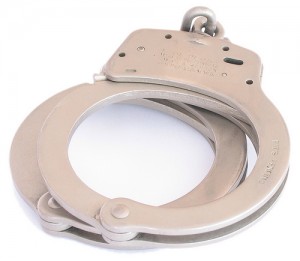How will anyone know?
That’s the question clients ask about assets that they don’t want to disclose on their bankruptcy schedules.
Clients are usually afraid of losing the property or of involving family and friends with the bankruptcy court. They really just want to fly under the radar in their social circles.
Why do we have to include it?
Start with the news: Lenny Dykstra, successful baseball player and formerly wealthy man, is going to prison for hiding assets in his bankruptcy.
He appeared in court in handcuffs and prison jump suit, with his family in the courtroom, for sentencing.
Bankruptcy is federal law, and messing with federal law gets you time in the Big House. Dykstra was ordered to pay $200,000 in restitution. By the way, restitution for a federal crime is not dischargeable in bankruptcy.
The X factor
How will anyone know? Often, it’s the ex’s that spill the beans.
Ex wives, ex partners, or ex friends. People who know the debtor well and have some other ax to grind.
They’re the ones who tell the trustee about the missing stuff.
It’s in the paper
Other times, the trail of breadcrumbs is in the papers. The tax return has depreciation for assets not scheduled or accounted for on the statement of financial affairs.
When I represented a Chapter 7 trustee, I uncovered a hidden property from the insurance bill in the debtor’s budget.
The bankruptcy bargain
The deal in bankruptcy is that, in exchange for full disclosure of their financial condition, debtors get a discharge of most of their debts.
Shortchange the system by not making full disclosure and you risk not only denial of the discharge, but time in the slammer.
My experience is that so often the assets my clients want to conceal do not really create the problem that the client envisions. Their assumptions about how bankruptcy works are dead wrong.
Either the asset has a low liquidation value, it is protectable with an exemption , or Chapter 13 solves the problem.
But once a bankruptcy case is filed that omits significant assets, there is very little I can do, as an attorney, about the assets the client conceals from me.
Read more
The assets you don’t know you own
Take the bankruptcy papers seriously
Image courtesy of The Comedian.







[…] Everyone who files banruptcy must disclose all their property in schedules filed with the court. Omitting property can keep a debtor from receiving a discharge of debts and, in a flagrant case, could even result in criminal prosecution. […]